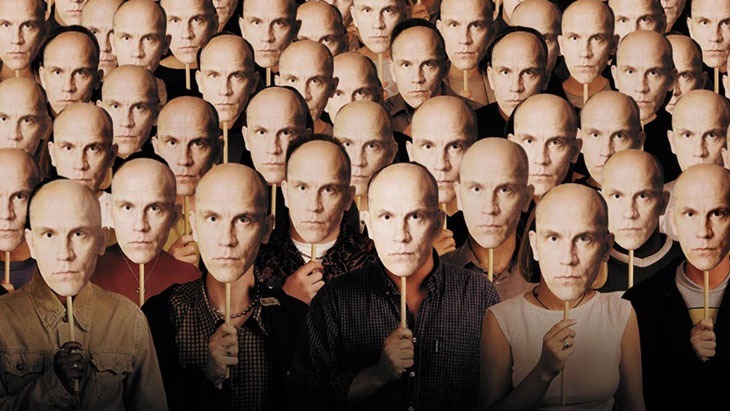
The Virtue of Inequality
Why is inequality a dirty word all of a sudden?
There is a movement to attack the existence of inequality at home and abroad. At first glance, this appears to be a good and noble cause. But as with all things in life, moderation is key. Certain aspects of inequality are moral and baked into the fabric of reality. The modern pursuit of equality in America has by and large devolved from the virtuous one in generations past into a misguided and immoral pursuit of uniformity. When sameness is confused and conflated with equality, everyone loses. Inequality is a good and necessary aspect of a society that is built on freedom.
“Human beings are born with different capacities. If they are free, they are not equal. And if they are equal, they are not free.” —Aleksandr Solzhenitsyn
Humans are not equal. Mankind is privileged with the status of equal worth (endowed by our creator with certain unalienable rights), but this equality of value cannot be confused with equality of outcome. There are vast disparities between the capacities and talents of any two individuals. In the pool, the average Joe will never be an equal to Michael Phelps. Aside from his moxie and skill, his physique is uniquely suited for maximizing underwater effectiveness. If we seek to achieve swimming equality between Joe and Phelps, the only way to attain this is by restricting Phelps’ superior ability so that it is uniform with the inferior Joe. But doing so would be a perversion of justice and an assault on freedom. We rightly allow players in the arena of athletics the freedom to rise to their full potential. Attempts to level the playing field in the meritocracy of sports are absurd and unjust. When “equality” is gained, freedom is lost.
This principle of freedom follows when applied to our merit based economy. In the eyes of the law, every American has equal moral value. In the eyes of our economic system, every American is unequal. This is a simple observation of reality. The skill set and labor of a high school dropout are not equal to the skill set and labor of a neurosurgeon. As in the example of Joe and Phelps, any attempt at equalizing the ability gap between the dropout and neurosurgeon is a foolish and unjust endeavor.
Fortunately, there is a component of compassion that is rooted in capitalism which allows for justice despite apparent discrepancies in ability or skill. The same principles of freedom that allow for incredible talent and skill to thrive in sports also exist and apply to our free market economy. Our society is replete with rags to riches stories, with my own immigrant heritage being one such example. Where else in the world are stories like these possible? Inequality is a necessary component of any society built upon freedom, but this is good, true, and allows for the possibility of excellence and success.
Capitalism is compassion. There is a redemptive quality ingrained in our economic system of the free exchange of goods and services. In the pool, Joe will never be equal to Phelps; this fact may lead Joe to lose hope, feel like the system is rigged, and therefore stop trying to swim at all. In the confines of aquatic sports, this damning situation could very likely happen. However, in our capitalistic economy, the losers and dregs of our society are not bound by the rules and nature of the swimming pool. Thanks to the freedom that capitalism equally provides to all, the high school dropout may very well go on to rise to unimaginable heights that far surpass anything the neurosurgeon could have attained. In truth, this has been the reality for many.
“Hierarchies are celestial. In hell all are equal.” —Nicolás Gómez Dávila
Economic systems such as communism or socialism pursue absolute equality as their end goal. As demonstrated in our aquatic example, this pursuit is at best misguided and at worst evil. Capitalism on the other hand pursues freedom as its end goal. However, the status of freedom is only as moral as the people who are living it out. Immoral exploitation can and has happened in the past under capitalist economies. But the risk of this potential exploitation far outweighs the proven benefits of a free economic system. Capitalism, like many other things in life, is an amoral tool that can be used for the promotion of good or evil, vice or virtue.
Inequality gets a bad name in our fragile culture where the status quo nowadays is to award trophies for mere participation. But this approach towards life is not indicative of reality. Inequality exists, but this is a fundamentally good and true aspect of our physical existence.
Free the People publishes opinion-based articles from contributing writers. The opinions and ideas expressed do not always reflect the opinions and ideas that Free the People endorses. We believe in free speech, and in providing a platform for open dialogue. Feel free to leave a comment.




john
I don’t think you meant this sentence: “But the risk of this potential exploitation far outweighs the proven benefits of a free economic system” Probably needs editing?
donna paris
Good article, however, I think the following sentence is not what you meant and needs revision:
” Immoral exploitation can and has happened in the past under capitalist economies. But the risk of this potential exploitation far outweighs the proven benefits of a free economic system.”
I think you mean:
But the risk of this potential exploitation is far outweighed by the proven benefits of a free economic system.”